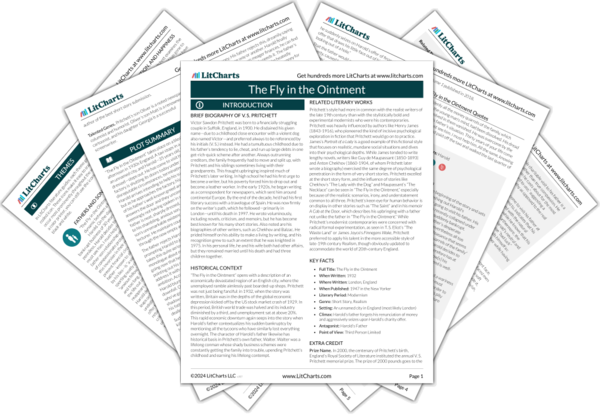Harold’s baldness emphasizes the strange reversal in this father-son relationship, in which Harold almost serves as a sort of father figure to his own father. The father, for his part, immaturely latches on to Harold’s baldness as a way of demeaning his son and, perhaps, as a way to assert a sense of superiority. In his utter lack of self-awareness, the father keeps insisting on the importance of ambition even in his downfall, and Harold’s piercing retort fails to actually change his father’s mind, only angering him. The father’s sudden resemblance to a convict marks another of the several physical transmutations he undergoes in the eyes of his son throughout the story.


